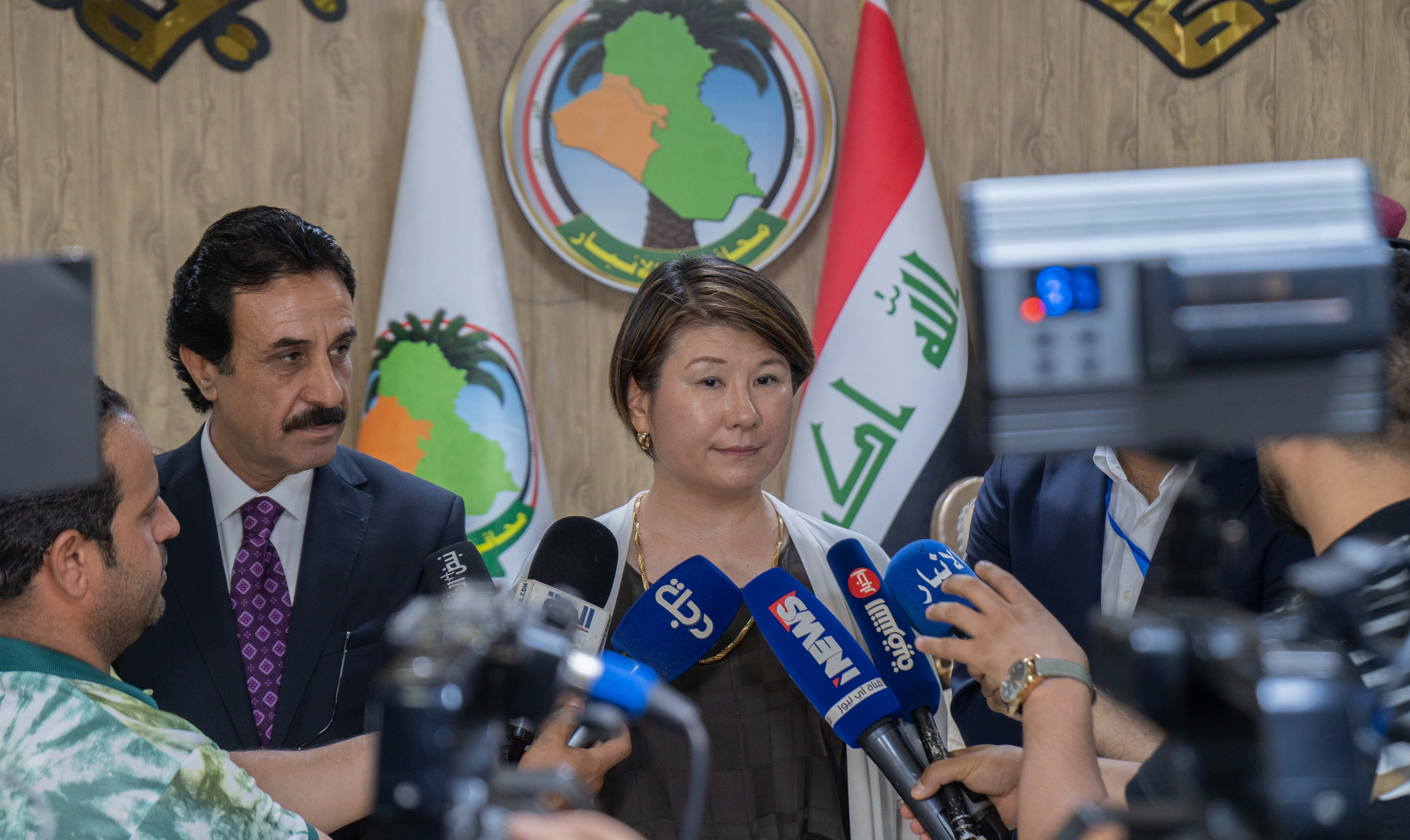Recovery in Iraq rests on displaced people returning home, says UNDP Crisis Chief
July 11, 2023

11 July, Baghdad – One million people remain displaced in Iraq six years after the defeat of Islamic State in Iraq and the Levant (ISIL), with a quarter of them perceived as ISIL-affiliated. On a visit to Anbar, Baghdad and Basra 10-14 July, United Nations Development Programme (UNDP) Assistant Secretary-General and Crisis Bureau Director Asako Okai says support to the country’s efforts to reintegrate everyone is critical to preventing extremism and boosting recovery.
“Of the many displaced families, one group carries a stigma that makes returning home even more difficult. These are the wives, sons, daughters, mothers, and fathers of those who joined ISIL, as well as those perceived as ISIL-affiliated. Failure to reintegrate them not only leaves the families facing hardship but hinders the country’s peace and development opportunities. By supporting returns, we can remove the factors that lead individuals to join extremist groups,” said ASG Okai.
Over 6 million people were forced to flee their homes between 2014-2017 as ISIL fighters seized control of 40 percent of the country, including Mosul, Iraq's second largest city. Eighty percent of displaced people have been able to return home. Of the current displaced population, 250,000 people are perceived as ISIL-affiliated and are mostly living in camps and dependant on humanitarian aid.
“The road to sustainable development and continued growth in Iraq cannot be paved with societal divisions or unhealed wounds. The reintegration of families perceived as ISIL-affiliated isn't just a matter of restoring dignity and security to individuals, but also crucially about closing the rifts that extremism thrives on. In this effort, UNDP is unwaveringly committed to supporting Iraq,” said Auke Lootsma, UNDP Iraq Resident Representative.
A staggering number of children associated with ISIL-affiliated families are struggling to access education, and a large number of women are facing difficulties in obtaining employment, health care, and other necessary social services. Within the camps, there is a higher likelihood of recruitment to extremist groups.
ASG Okai confirmed UNDP’s commitment to continue working alongside the Government of Iraq and other partners to provide the critical support needed for this complex reintegration process.
UNDP enables the return of displaced people by supporting the Government of Iraq in the rehabilitation of critical infrastructure and services, livelihoods creation, and local capacity development. UNDP works with local authorities, community leaders and community members and provides mental health counselling, supporting community acceptance for 9,000 internally displaced families with perceived ISIL affiliation to return to their communities.
ASG Okai will meet reintegrated families in Anbar, to understand their experiences and to assess the progress of the ongoing projects. She is also scheduled to meet with relevant local authorities to discuss ways to further strengthen the social cohesion initiatives.
For more information, or to arrange an interview with ASG Asako Okai please contact:
Aimee Brown, UNDP Crisis Bureau Communications Specialist
Mohammed Al-Bahbahanee, UNDP Iraq Communications Specialist

 Locations
Locations